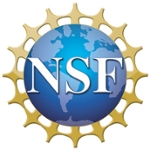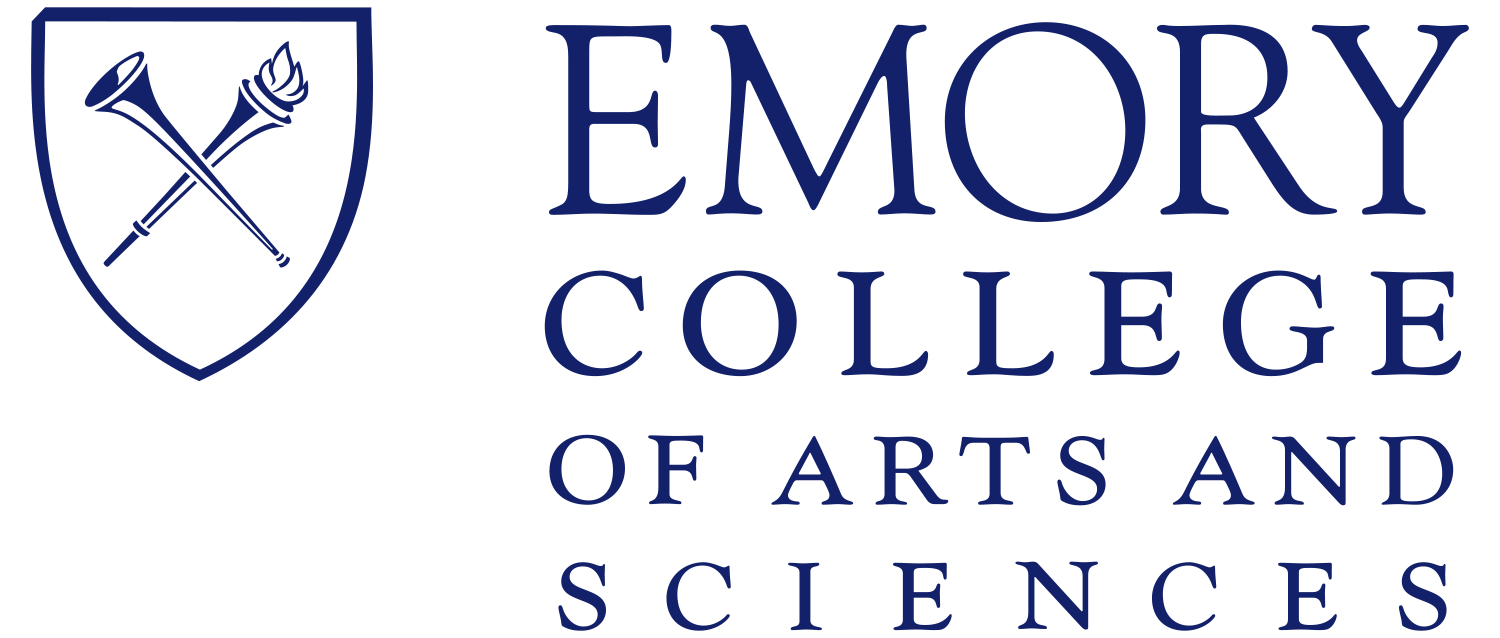Workshop: Working across scales in complex systems
“Workshop: Working across scales in complex systems” will be held at Emory University in Atlanta, GA, on Apr 12-14, 2023. The goal of this workshop is to find connections between different fields that explore multiscale nonequilibrium phenomena and to understand if these fields can learn from each other and benefit from unified mathematical frameworks. Main emphasis will be on Plasma Physics and Physics of Living Systems, but other fields of physics will be represented as well.
Some of the crucial features that make Biological Physics and Plasma Physics so difficult – and exciting! – are similar. Scientifically, in both fields, one seeks effective lower dimensional descriptions of the dynamics, in the absence of the clear temporal and spatial scale separation, and based on features that are spatiotemporally extended, persistent, but only approximately, and over relatively short times. Both fields exist on the boundary where dynamics and statistical physics approaches merge, overlap, and conflict. Because decades of research have not been able to produce general theory of the relevant phenomena in either field, and new experimental data are often plentiful, but hard to incorporate into theoretical frameworks, researchers are seeking theoretical descriptions using statistical inference approaches, which rely on ever more powerful deep learning neural network architectures. Culturally, the fields are mutidisciplinary, are somewhat separated from the rest of physics, and intergrate approaches and researcher outside of traditional physics departments. For example, the recent NASEM Decadal Survey of Biological Physics / Physics of Living Systems has recommended that Biological Physics should be better integrated within the rest of the physics community, both at the educational and at the research level.
Whether similarities between the fields are superficial or deep remains unexplored, largely because biological physics and plasma physics have no common venues for interactions. This workshop is envisioned as the first step towards finding commonalities between these and related fields.
Workshop Participants
Invited Participants:
Bedros Afeyan, Polymath Research Inc
Paulo Alves, UCLA
Fridtjof Brauns, KITP-UCSB
Michael Brenner, Harvard University
Justin Burton, Emory University
Chase Broedersz, Vrije Universiteit Amsterdam
Paul Cassak, West Virginia University
Predrag Cvitanovic, Georgia Institute of Technology
Nikta Fakhri, MIT
Flavio Fenton, GaTech
William Gilpin, University of Texas, Austin
John Goree, University of Iowa
Roman Grigoriev, GaTech
Matthew Kunz, Princeton University
Andrea Liu, University of Pennsylvania
Sarah Marzen, Claremont Colleges
Leonid Mirny, MIT
Philip Morrison, University of Texas, Austin
Armita Nourmohammad, University of Washington
Jennifer Rieser, Emory University
Vered Rom-Kedar, Weizmann Institute
Alexander Schekochihin, University of Oxford
Sara Solla, Northwestern University
Anatoly Spitkovsky, Princeton University
Greg Stephens, Vrije Universiteit Amsterdam/OIST
Anna Tenerani, University of Texas, Austin
Massimo Vergassola, ENS-Paris
Vincenzo Vitelli, University of Chicago
Jane Wang, Cornell University
Daniel Weissman, Emory University
Jonathan Wurtele, UC Berkeley
Local Participants:
Saad Bhamla, GaTech
Jennifer Curtis, GaTech
Francesco Fedele, GaTech
Daniel Sussman, Emory
Organizers:
NSF Support:
Program
Wednesday, April 12th, 2023
12:00 pm - 2:00 pm Arrival, Registration, Emory Convocation Hall (lunch on your own at nearby restaurants)
1:55 pm - 5:30 pm Session I, Emory Convocation Hall, Statistical models and coarse-graining without scale separation
1:55 -- The Organizers, Opening Remarks
2:00 -- Greg Stephens, Amsterdam, Maximally predictive states: from dynamics to information and back again
2:20 -- Jennifer Rieser, Emory, The macroscopic consequences of microscopic skin structures on limbless locomotion
2:40 -- Jane Wang, Cornell, Neurophysics of Insect Flight
3:00 -- Fridtjof Brauns, UCSB, Multiscale patterns in reaction–diffusion systems
3:20 - 3:50 -- coffee break
3:50 -- Sarah Marzen, Claremon-McKenna, Information-theoretic approach to time series dimensionality reduction
4:10 -- Alex Schekochihin, Oxford, Is universality possible in collisionless kinetics?
4:30 -- Leonid Mirny, MIT, Active chromosomes -- communication and memory
4:50 -- John Goree, Iowa, Survival-function analysis of the rearrangement of particles in a liquid-like dusty plasma experiment
5:10 -- Organizers' summary and Discussion
5:30 pm - 6:30 pm Break, explore campus
6:30 pm - 8:30 pm Reception and Dinner (catered), Emory Convocation Hall
8:00 -- Slava Lukin and Angel Garcia, NSF, NSF as a complex system
Thursday, April 13th, 2023
8:00 am - 9:00 am Breakfast (included, for guests staying at the Hotel), Emory Conference Center Hotel
9:15 am - 12:45 pm Session II, The Hatchery, Nonequilibirum thermodynamics and flows
9:15 -- Matt Kunz, Princeton, How nonequilibrium thermodynamics constrains magnetohydrodynamics in dilute astrophysical plasmas
9:35 -- Massimo Vergassola, ENS, Cytoplasmic flows
9:55 -- Anna Tenerani, Texas, Alfven waves and turbulence in the solar wind
10:15 -- Nikta Fakhri, MIT, Physics of Living Systems
10:35 - 11:05 -- coffee break
11:05 -- Philip Morrison, Texas, The inclusive metriplectic form of nonequilibirum thermodynamics
11:25 -- Daniel Weissman, Emory, Evolution in space: the effect of dispersal patterns on population genetics
11:45 -- Vered Rom-Kedar, Weizmann, Modeling density driven flows in the presence of chaotic advection
12:05 -- Paul Cassak, West Virginia, Quantifying energy conversion in higher order phase-space density moments in nonequilibrium statistical mechanics
12:25 -- Organizers' summary and Discussion
12:45 pm - 2:15 pm Lunch (included), Silverbell Pavillion, Conference Center
2:15 pm - 5:25 pm Session III, The Hatchery, Coherent dynamical structures: detection and modeling
2:15 -- William Gilpin, Texas, Orbit hierarchies determine the empirical predictability of chaotic systems
2:35 -- Anatoly Spitkovsky, Princeton, Collisionless shock in plasma as a "living" organism
2:55 -- Flavio Fenton, GaTech, Quantifying chaos in the heart; from periodic orbits and period 3 to chaos in live animal and human explanted hearts
3:15 -- Andrea Liu, Penn, Building hybrid machine-learning/theory models for cooperative dynamics in glass forming liquids
3:35 - 4:05 -- coffee break
4:05 -- Bedros Afeyan, Polymath, Complexity and control in laser-plasma instability physics
4:25 --Predrag Cvitanovic, GaTech, Turbulence
4:45 -- Michael Brenner, Harvard, Designing living synthetic materials with automatic differentiation
5:05 -- Organizers' summary and Discussion
6:00 pm - 7:00 pm Emory Carlos Museum Tour
Dinner on your own
Friday, April 14th, 2023
8:00 am - 9:00 am Breakfast (included, for guests staying at the Hotel), Emory Conference Center Hotel
9:15 am - 12:45 pm Session IV, The Hatchery, Machine learning for discovery of effective degrees of freedom and their interactions
9:15 -- Roman Grigoriev, GaTech, Physically-Informed Machine Learning for Equation Inference
9:35 -- Sara Solla, Northwestern, The prevalence of low-dimensional dynamics in connected systems
9:55 -- Paolo Alves, UCLA, Machine learning methods for inferring reduced models of plasma dynamics from data of first-principles simulations
10:15 -- Armita Nourmohammad, Washington, Learning the shape of the protein universe
10:35 - 11:05 -- coffee break
11:05 -- Chase Broedersz, Amsterdam, Learning the dynamics and interaction of moving cells
11:25 -- Justin Burton, Emory, Inferring forces in many-particle systems using physics-tailored machine learning
11:45 -- Vincenzo Vitelli, Chicago, Learning physical models from biological data
12:05 -- Organizers' summary and Discussion
12:25 -- Closing Discussions
12:45 pm - 2:00 pm Brown-bag lunch (provided) and Discussions of Deliverables
Departure (The Hatchery open for discussions till 5 pm)
Workshop Registration
Local Information
Closest Airport: Atlanta Hartsfield-Jackson International Airport.
Local Transportation: Take Uber/Lyft/taxi from the airport to the Emory Conference Center Hotel; depending on the traffic conditions, the ride should take 30-40min, and should cost about $50. Public transportation options are available, but not recommended (Option 1: Take MARTA train Red Line connecting to Blue Line to Decatur station; connect to Emory CCTMA shuttle to the Conference Center; Option 2: Take MARTA train Red Line to Lindberg station; connect to MARTA bus #6 to the Conference Center. You can also take an Uber/Lyft/taxi from Lindberg or Decatur).
Hotel: Emory Conference Center Hotel, 1615 Clifton Road NE, Atlanta, Georgia 30329.
Conference Location: April 12: Convocation Hall; Apr 13-14: The Hatchery.
Parking: Vouchers will be provided for local participants to selected parking decks, TBA.
Exploring Atlanta: Atlanta is lovely in April. You should expect highs in the seventies and lows in the upper fifties. This is a peak blooming season, so don't forget your allergy meds. If you have time to explore the city, Atlanta Belt Line is the place to walk, have a drink, and see the locals. Hahn Woods nature preserve, which features a stream and running/hiking trails, borders the Conference Hotel. The local Ilya's favorite places to recommend for visitors to explore are: the Cabbagetown murals and the Krogh Street Tunnel, Oakland Cemetery, Margaret Mitchell's house, Georgia Aquarium, Blind Willie's Blues club, MLK National Historic Park, Eddies Attic in Downtown Decatur, and, of course, the (in)famous Stone Mountain. All of these places (except Stone Mountain) are reachable by a short taxi/Uber ride from the conference center; you don't need a car and the associated parking hassle. The Stone Mountain is a longer drive (still acccessible by a taxi), but local participants might be willing to drive you.
Car Rental: Old maps still show Enterprise car rental facility inside the Conference Center; this rental location has closed. Enterprise (which will pick you up) has rental facilities nearby, and Emory has a discount with them; if you are staying in Atlanta for extra days around the workshop time, you may want to rent from them.


